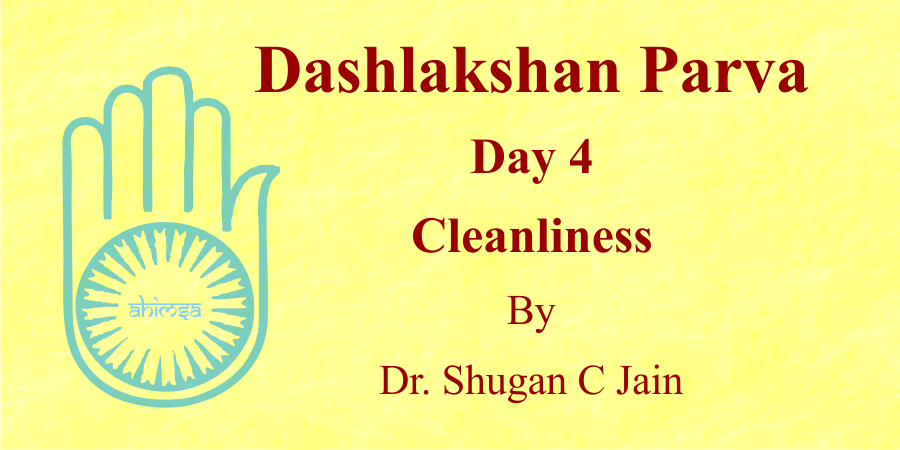Today we shall talk about Cleanliness (Shauch) as the fourth spiritual virtue.
Cleanliness here is different from the external cleaning of the body we do almost daily by taking a bath, going to the toilet, etc. Here, cleanliness implies eliminating or minimizing greed (lobha). Greed implies the acquisitiveness or persistent desire to have more and more material and living things and never feel content / happy. Gandhi rightly said, ‘The earth has enough resources to satisfy the needs of all living beings but not enough to satisfy the greed of even one person’. One cannot feel content unless he also believes in and practices the three earlier virtues, namely forgiveness, humility and straightforwardness.
Just as a farmer makes his land level and removes all the stones etc. before sowing seeds in the land with a view to get a rich harvest from the land, similarly we should make our mind neat and clean. One of the ten commandments of Christian religion says, ‘You can take a camel through the eye of a needle but you cannot take a rich man through the gate of heaven’.
Greed is the root cause of all sins. Happiness is a virtue of the soul and lies within us. A greedy man cannot lead a happy life as he is always obsessed to acquire more things. This is so because he thinks that acquiring things he is mad about will make him happier, while the actual result is the opposite. For example, I feel happy when I buy a new Mercedes car but the moment, I see a better car in the neighbourhood, I start craving for the same and become discontented with my own car. So, cleanliness implies getting rid of or minimizing the tendency of acquisitiveness or desiring for more and developing the art of feeling content with what you have. However, it does not imply to be lazy and not work for higher attainments in life.
It is important to differentiate between greed (for material things) and ambition (attainment of certain non-material objectives) as the very essence of human life is to move higher and higher in spiritual and worldly status through self-effort.
We live in a world where consumerism is promoted heavily. We are constantly bombarded with advertisements and other media with newer and better products and how we can save and be happy by buying them. As a result, we see more and more people getting involved in crime for petty things while those who can afford are always obsessed (and feel unhappy) to crave for those new products, even though they are not necessary. The dilemma is how to manage this craving or desire to acquire more and more new things. This virtue of cleanliness is definitely the solution to be aimed for.
Let us now see how it is practiced in different life situations:
In the family: To develop a feeling of gratitude to your parents or partners in what they provide rather than always demanding more and more new things and blaming them. Share your things with your brothers / sisters and others in the family as happiness is contagious.
In school / college: Minimise the desire to show off yourself with your latest and costlier possessions. Rather try to develop personal achievements in studies, sports, extra-curricular activities like music / dance / art / debating, etc.
Dealing with society, government: Develop a feeling of gratitude towards them for the beautiful space they provide to you to enhance your happiness.
Lifestyle: Cleanliness / contentment is a very important lifestyle practice for success and happiness. You develop a feeling of gratitude towards others to enjoy what you have and work harder to further improve your and their happiness. I remember an old saying in Hindi which means ‘You get pearls without begging for them while you do not get even alms while begging’. So, family and friends stay content with what you have and work harder to strive for greater happiness for yourself and your acquaintances.

